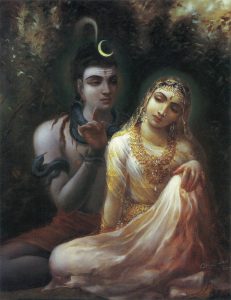

The following is an excerpt from Śrīla Bhaktivedānta Vāmana Mahārāja’s introduction to Śrī Mādhava-tithi (Glories of Śrī Ekādaśī-vrata)
The seventh edition of the book Śrī ekādaśī-vrata-kathā has been published by Śrī Gauḍīya  Vedānta Samiti. This book has been compiled from various Purāṇas and from the king of all of the Vaiṣṇava smṛtis, Śrī Hari-bhakti-vilāsa. Nitya-līlā-praviṣṭa oṁ viṣṇupāda aṣṭottara-śata Śrī Śrīmad Bhakti Prajñāna Keśava Gosvāmī Mahārāja has reestablished Śrī Caitanya Pañjikā (calendar), published by Śrī Gauḍīya Vedānta Samiti. In the introductions, he has given some instructions under the title Gauḍīyera Kṛṭya (Bhāgavata-dharma) which dovetail with the ideology of Jagat-guru Śrīla Bhaktisiddhānta Sarasvatī Gosvāmī Prabhupāda, who embodies the ideal of Śrī Caitanya Pañjikā. He has provided special orders regarding following the vows of the days of Lord Hari such as ekādaśī, and regarding saṅkhyā-pūrvaka-nāma-grahaṇa (a vow to daily chant the holy name a certain number of times). Following the vow of ekādaśī is mentioned among the sixty-four ways of executing devotional service. Therefore, all qualified personalities have accepted the truth and usefulness of following the vow of ekādaśī in order to attain devotional service to Hari.
Vedānta Samiti. This book has been compiled from various Purāṇas and from the king of all of the Vaiṣṇava smṛtis, Śrī Hari-bhakti-vilāsa. Nitya-līlā-praviṣṭa oṁ viṣṇupāda aṣṭottara-śata Śrī Śrīmad Bhakti Prajñāna Keśava Gosvāmī Mahārāja has reestablished Śrī Caitanya Pañjikā (calendar), published by Śrī Gauḍīya Vedānta Samiti. In the introductions, he has given some instructions under the title Gauḍīyera Kṛṭya (Bhāgavata-dharma) which dovetail with the ideology of Jagat-guru Śrīla Bhaktisiddhānta Sarasvatī Gosvāmī Prabhupāda, who embodies the ideal of Śrī Caitanya Pañjikā. He has provided special orders regarding following the vows of the days of Lord Hari such as ekādaśī, and regarding saṅkhyā-pūrvaka-nāma-grahaṇa (a vow to daily chant the holy name a certain number of times). Following the vow of ekādaśī is mentioned among the sixty-four ways of executing devotional service. Therefore, all qualified personalities have accepted the truth and usefulness of following the vow of ekādaśī in order to attain devotional service to Hari.
It is mentioned in the Purāṇas that the beloved day of ekādaśī can fulfil all of the desires of every human being. By following this vow all sins are destroyed, one achieves all of the goals of human life, and one is able to please Śrī Kṛṣṇa. The following are four well-known considerations regarding the vow of ekādaśī: observing it pleases Bhagavān; it is based on scriptural injunctions; it imposes restrictions on taking meals and failing to follow it results in offences accruing. The vow of ekādaśī is very dear to Śrī Hari. Anyone who observes this vow with devotion, whether a brāhmaṇa, kṣatriya, vaiṣya, śudra, woman, or man, will attain liberation and association with Bhagavān.
It is essential for everyone to fast on ekādaśī. A person seeking the full benefit of the fasting will refrain from dinner the night before ekādaśī, from all meals the day of ekādaśī, and from dinner the night after ekādaśī. All sins such as brahma-hatyā enter grains on the day of fasting. Therefore, one who eats the five types of grains (barley, paddy, mustard, black grams, sesame, etc.) during ekādaśī accepts all types of sins and is counted  among the sinners such as the killers of a mother, father, brother, or spiritual master. For brahmacārīs (celibate students under the care of a bona fide spiritual master), gṛhasthas (householder devotees), vānaprasthas (those retired from family life), and yatis (renounced persons), eating restricted foodstuffs on ekādaśī is like eating beef. There is a prescribed system for liberating drunkards, thieves, and killers of brāhmaṇas, but there is no provision for protecting persons who eat grains on ekādaśī. One who does so will go to hell along with one’s forefathers. It is also unlawful for one to insist that anyone else eat restricted foodstuffs on the day of Lord Hari.
among the sinners such as the killers of a mother, father, brother, or spiritual master. For brahmacārīs (celibate students under the care of a bona fide spiritual master), gṛhasthas (householder devotees), vānaprasthas (those retired from family life), and yatis (renounced persons), eating restricted foodstuffs on ekādaśī is like eating beef. There is a prescribed system for liberating drunkards, thieves, and killers of brāhmaṇas, but there is no provision for protecting persons who eat grains on ekādaśī. One who does so will go to hell along with one’s forefathers. It is also unlawful for one to insist that anyone else eat restricted foodstuffs on the day of Lord Hari.
A widow who takes grains on ekādaśī loses all of her pious merits, and persons included in all of the social and spiritual classes (sarva-varṇī and sarvāśramī) who do so, like renounced persons (yati) and chaste, married women (satī), are also destined to languish in the hell called andha-tāmisra. One who observes with faith fasting on the days of ekādaśī that fall in both fortnights of a month, along with one’s family members, will attain devotion for Bhagavān and reach the ultimate abode. One must maintain the vow of ekādaśī even in times of great adversity and during the period of impurity following the birth or death of a family member. If the occasional day of offering oblations to the forefathers (naimittika-śrāddha) falls on ekādaśī, one should fast on that day and then conduct śrāddha on dvādaśī (the twelfth day of the fortnight, or the day after ekādaśī). One must never perform śrāddha on the day of ekādaśī because the demigods and elevated forefathers never accept such condemned food. If one does perform śrāddha on ekādaśī, the person who makes the offering, the enjoyer of the  offering, and the departed soul, all have to go to hell. It is the duty of all human beings between the ages of eight and eighty, including those who are weak, to fast on the ekādaśī of both the bright and dark fortnights. Lord Śiva told Pārvatī-devī, “If a wicked sinner who eats grains on the day of Lord Hari (hari-vāsara) tries to take shelter of devotional service to me, I will not accept him.” If a wife observes the vow of ekādaśī for the benefit of her husband, she is entitled to one-hundred-times more pious merit. Children, elderly people, and those suffering from a bodily or mental disease may follow ekādaśī by eating only once at night, or by consuming milk, fruit, and roots.
offering, and the departed soul, all have to go to hell. It is the duty of all human beings between the ages of eight and eighty, including those who are weak, to fast on the ekādaśī of both the bright and dark fortnights. Lord Śiva told Pārvatī-devī, “If a wicked sinner who eats grains on the day of Lord Hari (hari-vāsara) tries to take shelter of devotional service to me, I will not accept him.” If a wife observes the vow of ekādaśī for the benefit of her husband, she is entitled to one-hundred-times more pious merit. Children, elderly people, and those suffering from a bodily or mental disease may follow ekādaśī by eating only once at night, or by consuming milk, fruit, and roots.
Ekādaśī has appeared for the protection of all living entities, just like a mother protects her babies, and like medicine protects a sick person. Blessed and intelligent are those who follow the vow of ekādaśī after obtaining the rare human form of life in this world that is so full of diseases. If one abandons the vow of ekādaśī for some other vow, one loses the jewel he had in his hand and replaces it with a worthless pebble. Simply by fasting on the ekādaśī of both fortnights, one attains devotion for Bhagavān and achieves the topmost destination. One should not give up the vow of ekādaśī even during times of calamity or impurity.
One can become free from this distressful material world by fasting on ekādaśī and worshipping Janārdana. Sinful people bitten by the snake of material existence will become happy and peaceful by fasting on ekādaśī. One receives the highest benefit by completely fasting from all food and water. One undergoes atonement and is delivered from material existence by remembering Govinda and fasting on ekādaśī. The vow of ekādaśī is the  best among all religious observances and is very dear to the Lord of the universe, who is the shelter of all happiness, religion, and transcendental qualities. Those who faithfully observe this vow are eligible to go to Vaikuṇṭha. One becomes free from all sins and achieves the highest goal by hearing narrations about the observance of ekādaśī, by observing ekādaśī, or by giving faith to others to follow ekādaśī. Only this day of Hari, and not pious activities such as giving charity, performing austerities, or visiting holy places, can bestow liberation.
best among all religious observances and is very dear to the Lord of the universe, who is the shelter of all happiness, religion, and transcendental qualities. Those who faithfully observe this vow are eligible to go to Vaikuṇṭha. One becomes free from all sins and achieves the highest goal by hearing narrations about the observance of ekādaśī, by observing ekādaśī, or by giving faith to others to follow ekādaśī. Only this day of Hari, and not pious activities such as giving charity, performing austerities, or visiting holy places, can bestow liberation.
Those dedicated to ekādaśī are worshipable everywhere, and for them there is no fear of disease, troubles, jealousy, depression, nor anxiety because they always remember Śrī Hari. Such persons attain spotless devotion for Śrī Kṛṣṇa because they have taste for hari-kathā and the pure intelligence to recognize their eternal religious duties. Ekādaśī is the embodiment of pious merit, the destroyer of sins, the encourager of devotion to Viṣṇu, and the bestower of the topmost spiritual destination. The Supreme Lord of the universe has personally manifested in the form of ekādaśī; ekādaśī is a potency emanating from Lord Viṣṇu that is unlimited and that pervades the entire universe.
One should accept only the vow of pure ekādaśī and should reject aruṇodaya-viddhā or daśamī-viddhā  ekādaśī (ekādaśī polluted by daśamī). Ekādaśī mixed with daśamī is considered to be contaminated with all of the sins of the three worlds. Demons and atheists take shelter of ekādaśī mixed with daśamī; Bhagavān bestows the desired result only on one who fasts on ekādaśī connected with dvādaśī. Ekādaśī that is polluted by daśamī is not considered hari-vāsara. Thus, one should perform pāraṇa (breaking the fast) on trayodaśī. Jagadguru Śrīla Bhaktivinoda Ṭhākura has sung: mādhava-tithi bhakti-jananī, yatane pālana kari. Yatane pālana kari means that one should reject this polluted (viddhā) ekādaśī. Ekādaśī has many names, and there are eight great dvādaśīs with different names. This book includes many histories and details related to ekādaśī, and there is no doubt that it will be very helpful for those who choose to follow ekādaśī. The appendix includes a description of the eight great dvādaśīs, a song about the duties on the day of ekādaśī, and further glorification of ekādaśī. These additions will provide further insight and appreciation for followers of this vow. Our service and efforts in making this book will be meaningful if readers follow this vow and attain devotion to Bhagavān. What more can we say; it is our humble entreaty that if readers find any shortcomings or omissions in this book due to our inattention, out of kindness they will let us know so that the book can be corrected. Alaṁ iti vistareṇa (let this be enough).
ekādaśī (ekādaśī polluted by daśamī). Ekādaśī mixed with daśamī is considered to be contaminated with all of the sins of the three worlds. Demons and atheists take shelter of ekādaśī mixed with daśamī; Bhagavān bestows the desired result only on one who fasts on ekādaśī connected with dvādaśī. Ekādaśī that is polluted by daśamī is not considered hari-vāsara. Thus, one should perform pāraṇa (breaking the fast) on trayodaśī. Jagadguru Śrīla Bhaktivinoda Ṭhākura has sung: mādhava-tithi bhakti-jananī, yatane pālana kari. Yatane pālana kari means that one should reject this polluted (viddhā) ekādaśī. Ekādaśī has many names, and there are eight great dvādaśīs with different names. This book includes many histories and details related to ekādaśī, and there is no doubt that it will be very helpful for those who choose to follow ekādaśī. The appendix includes a description of the eight great dvādaśīs, a song about the duties on the day of ekādaśī, and further glorification of ekādaśī. These additions will provide further insight and appreciation for followers of this vow. Our service and efforts in making this book will be meaningful if readers follow this vow and attain devotion to Bhagavān. What more can we say; it is our humble entreaty that if readers find any shortcomings or omissions in this book due to our inattention, out of kindness they will let us know so that the book can be corrected. Alaṁ iti vistareṇa (let this be enough).
Image/Art made possible by Pixabay.com & Krishnapath.org








